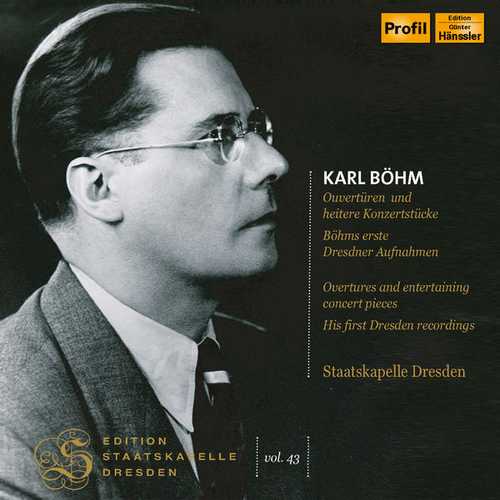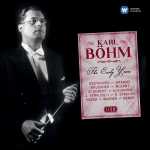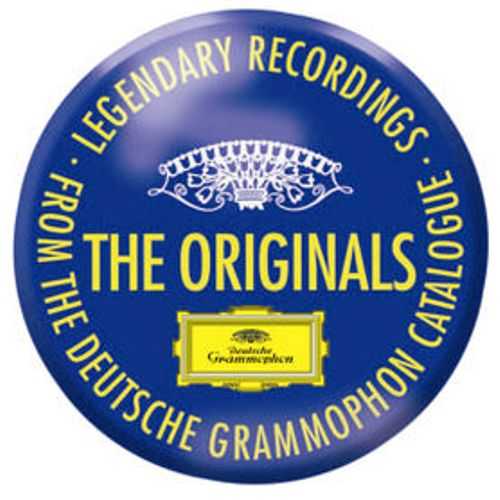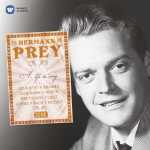
Composer: Ludwig van Beethoven, Theodor Berger, Hector Berlioz, Johannes Brahms, Engelbert Humperdinck, Ruggiero Leoncavallo, Albert Lortzing, Pietro Mascagni, Wolfgang Amadeus Mozart, Emil Nikolaus von Reznicek, Franz Peter Schubert, Bedrich Smetana, Johann Strauss, Pyotr Il’yich Tchaikovsky, Giuseppe Verdi, Carl Maria von Weber
Performer: Christel Goltz, Chor der Staatsoperette Dresden
Orchestra: Staatskapelle Dresden
Conductor: Karl Böhm
Number of Discs: 2
Format: FLAC (tracks)
Label: Profil Medien
Catalogue: PH18035
Release: 2018
Size: 643 MB
Recovery: +3%
Scan: yes
CD 01
Strauss J II: Die Fledermaus
01. Overture
Strauss J II: Indigo und die vierzig Räuber
02. Interlude
Mozart: Die Entführung aus dem Serail, K384
03. Overture
Mozart: Le nozze di Figaro, K492
04. Overture
05. Beethoven: Leonore Overture No. 3, Op. 72b
Beethoven: Egmont Incidental Music, Op. 84
06. Overture
Weber: Der Freischütz Op. 77, J. 277
07. Overture
Weber: Oberon
08. Overture
Lortzing: Undine
09. Ballet Music
Lortzing: Zar und Zimmermann
10. Holzschuhtanz
Smetana: The Bartered Bride
11. Overture
CD 02
Humperdinck: Hänsel und Gretel
01. Overture
Leoncavallo: Pagliacci
02. Intermezzo
Mascagni: Cavalleria Rusticana
03. Intermezzo
04. Laßt uns preisen den Herrn (Sung in German)
Verdi: Aida
05. Prelude
Reznicek: Donna Diana
06. Overture
Berlioz: La Damnation de Faust, Op. 24
07. No. 3, Marche hongroise
08. Mozart: Serenade No. 13 in G major, K525 ‘Eine kleine Nachtmusik’
Schubert: Marches Militaires, D733
09. No. 1 in D Major (Arr. for Orchestra)
10. Tchaikovsky: Capriccio italien, Op. 45 TH 47
11. Strauss J II: Kaiser-Walzer, Op. 437
12. Berger T: Rondino Giocoso, Op. 4
Brahms: Hungarian Dances
13. No. 5 in G Minor
14. No. 6 in D Major
April 1935. Dresden’s vast Semper Opera, where several of Wagner’s works were first performed, is now a hive of activity. Microphones are being put out, the seats covered up, sound screens are being erected, and metres of cables rolled out. While Nazism is rapidly establishing itself across the country, the preparations are being made for the recording of a light and popular classical music album, led by the young conductor Karl Böhm, who has succeeded Fritz Busch, who left Germany two years earlier in protest against the election of Hitler as Chancellor.
Though Karl Böhm never cheered on the arrival of this new Germany, he believed strongly in it, and accommodated to the regime during the war, which would inspire feelings of “remorse” when the hostilities were over.
This album was recorded in a single take: corrections and manipulation were not possible at a time when magnetic tapes didn’t exist. The result was some very vivacious performances of famous “popular classics” such as Die Fledermaus by Johann Strauss fils, and overtures by Mozart, Beethoven and Weber which in those days were on the programme of every symphony concert. The second part is lighter, with works like the overture from Hansel and Gretel by Humperdinck, symphonic extracts from verist Italian and that veritable masterpiece of composition and orchestration which is the overture from Donna Diana by Řezníček who was enjoying great popularity in all the Sunday matinée concerts of Europe. This joie de vivre would be done away with by the war which broke out one dark day in 1939.



